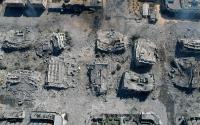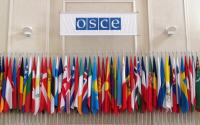Rosemary HartillMonday December 30, 2002
Over the Christmas season, most of us have heard the word "peace" many times. Yet the New Year could soon bring British troops to Iraq to kill and be killed.
To members of the Religious Society of Friends, who worship mostly in peaceful silence together, war is a deeply uncomfortable prospect. Not every Quaker these days would describe themselves as pacifists in all circumstances, but all are committed to finding alternatives to violence.
Before I became a member, I used to think pacifism seemed attractive, but not if it meant relying on other people to do the dirty work of dealing with the bullies. Pacifism felt passive.
But then I read the famous peace testimony, sent in 1660 by early Quakers to the restored monarch, Charles II. Written out of their experience of England's devastating civil war, the letter is active in tone.
"All bloody principles and practice we do utterly deny, with all outward wars, and strife, and fightings with outward weapons, for any end, or under any pretence whatsoever... Our principle is, and our practices have always been, to seek peace, to ensure it, and to follow after righteousness and the knowledge of God."
This non-violence is the opposite of passivity. It demands respect for the worth of others and an active search for justice. Nor is it submissive. It is not about letting someone take advantage of you - your rights are worthy of respect and you are entitled to assert them. Nor is it about martyrdom - it doesn't seek suffering. It recognises that risk and suffering are inherent in both violent and non-violent lifestyles.
Over the centuries, Quaker experience suggests that anyone committed to a just peace must lay aside assumptions that violent or destructive solutions are the only ones. They must be willing to try something different.
Certainly the last year has not been a good advert for violent "solutions". Israel/ Palestine is locked in a devastating cycle of violence and revenge. In Afghanistan, the Taliban regime has been destroyed, but the country remains deeply unstable. Few al-Qaida leaders have been captured, and the scattering of their forces has made them more difficult to counteract. This has arguably made the world more dangerous than it was a year ago.
A war on Iraq could result in major civilian casualties and lead to the use of weapons of mass destruction. It is likely to increase antagonism to the US in the region, offer no clear exit for us and cost billions of pounds.
Today, the Quaker testimony remains as energetic as ever: "to seek peace, and to follow after righteousness and the knowledge of God, seeking the good and welfare, and doing that which tends to the peace of all."
In 2003, Quakers will continue to back a number of approaches to non-violence, including:
· an international treaty to control and reduce arms sales.
· the collection of guns. In El Salvador, 1995-97, 10,000 weapons were handed in in exchange for food vouchers.
· the training of more civilians to check and report on intimidation or ethnic violence.
· more bridge-building and mediation.
· the addressing of the roots and causes of terrorism as well as the symptoms.
· a sustained commitment to a fair and just settlement to the Israeli-Palestinian confrontation.
· an end to all sanctions against Iraq.
· the closing off of the supply of fissile material to Iraq, North Korea, Syria, Iran and Libya.
· the implementation of the biological and toxin weapons convention.
· more money for conflict resolution.
Quakers regularly repeat a set of queries and instructions, intended both for their comfort and discomfort. Three in particular give the lie to the idea that non-violence is passive: "Are you following Jesus's example of love in action?" "Search out in your own life whatever may contain the seeds of war." And "Live adventurously."
· Rosemary Hartill is an independent radio broadcaster, writer and Quaker






